
by Pigeon Patrol | May 3, 2021 | Bird Deterrent Products, Bird Law, pet bird, Pigeon Droppings, Pigeon Spikes, Pigeons
Many types of birds are attracted to swimming pools. As a result, swimmers might come in contact with bird droppings (poop) while in the pool. If you find bird droppings in the pool, there are a few simple steps you can take to disinfect the water and keep birds away from the pool.
Can bird droppings in the pool spread germs to swimmers?
Many germs that might be found in bird droppings can infect humans. Duck and goose droppings, in particular, might contain germs such as E. coli, Salmonella, Campylobacter, or Cryptosporidium (“Crypto” for short).
Most germs in bird droppings are killed by chlorine within minutes in a well-maintained pool.
The germ Crypto, however, has a tough outer shell that allows it to survive for a long time in the environment. Crypto can survive for days even in properly chlorinated pools. Currently, CDC is not aware of any evidence of Crypto being spread directly from birds to humans.
What should I do if I find bird droppings in the pool?
Pool operators and owners should respond to finding bird droppings in the pool the same way they would respond to finding formed human feces (poop) in the pool. The Healthy Swimming Program’s Fecal Incident Response Recommendations Cdc-pdf[PDF – 4 pages] provide step-by-step guidance on how to properly decontaminate the water in these situations.
Follow these steps to remove bird droppings and disinfect the water:
-
Close the pool to swimmers.
-
Put on disposable gloves.
-
Remove the bird droppings using a net or bucket. Do not vacuum the droppings from the pool.
-
Clean off any debris or dirt from the item used to remove the bird droppings.
-
Disinfect the item used to remove the droppings by immersing it in the pool during the 30-minute disinfection time described below.
-
Remove and dispose of gloves.
-
Wash your hands thoroughly with soap and water immediately.
-
Raise the free chlorine concentration to, or maintain it at, 2 parts per million (ppm); maintain the pH level at 7.5 or less; keep the temperature at 77°F (25°C) or higher. The free chlorine and pH should remain at these levels for 30 minutes.
-
Confirm that the filtration system is operating properly.
How can I keep birds away from the pool area?
The following steps can help encourage birds, other than ducks and geese (more information on ducks and geese is provided below), to leave the swimming pool area:
-
Remove plants that produce edible nuts, fruits, and berries.
-
Remove bird feeders.
-
Trim or remove trees and shrubs to limit branches hanging around or over the pool that can be used by roosting birds.
How can I keep ducks and geese away from the pool area?
Do not feed ducks or geese; providing food attracts them and encourages them to return. Many types of ducks and geese eat grass, so reducing the area of grass lawns around the swimming pool or putting up barriers that prohibit movement between swimming pools and grass lawns, such as fences and hedges, might also help. Removing domestic ducks and geese from the pool area can also help decrease the likelihood that wild ducks and geese will be attracted to the area.
The U.S. Department of Agriculture has additional information on how to manage ducks and geese (also known as waterfowl) in their document Assistance with Waterfowl Damage. Cdc-pdf[PDF – 3 pages]External
What can I do to get rid of ducks and geese already in the pool area?
In the United States, most birds, including ducks and geese, are protected by the Federal Migratory Bird Treaty Act and state laws. Local laws might also apply. Therefore, legal options for dealing with birds are limited and may require a permit. Consult the U.S. Fish and Wildlife ServicesExternal and your state wildlife agencyExternal for more information.
Pigeon Patrol Products & Services is the leading manufacturer and distributor of bird deterrent (control) products in Canada. Pigeon Patrol products have solved pest bird problems in industrial, commercial, and residential settings since 2000, by using safe and humane bird deterrents with only bird and animal friendly solutions. At Pigeon Patrol, we manufacture and offer a variety of bird deterrents, ranging from Ultra-flex Bird Spikes with UV protection, Bird Netting, 4-S Bird Gel and the best Ultrasonic and audible sound devices on the market today.
Voted Best Canadian wholesaler for Bird Deterrent products ten years in a row.
Contact us at 1- 877– 4– NO-BIRD, (604) 585-9279 or visit our website at www.pigeonpatrol.ca
Pigeon/Pigeon Patrol / Pigeons Roosting / Vancouver Pigeon Control /Bird Spikes / Bird Control / Bird Deterrent / Pigeon Deterrent? Surrey Pigeon Control / Pest /Seagull deterrent / Vancouver Pigeon Blog / Birds Inside Home / Pigeons in the cities / Ice Pigeons/ What to do about pigeons/ sparrows , Damage by Sparrows, How To Keep Raccoons Away, Why Are Raccoons Considered Pests/ De-fence / Pigeon Nesting/ Bird Droppings / Pigeon Dropping/ woodpecker control/ Professional Bird Control Company/ Keep The Birds Away/ Birds/rats/ seagull/pigeon/woodpecker/ dove/sparrow/pidgeon control/pidgeon problem/ pidgeon control/flying rats/ pigeon Problems/ bird netting/bird gel/bird spray/bird nails/ bird guard
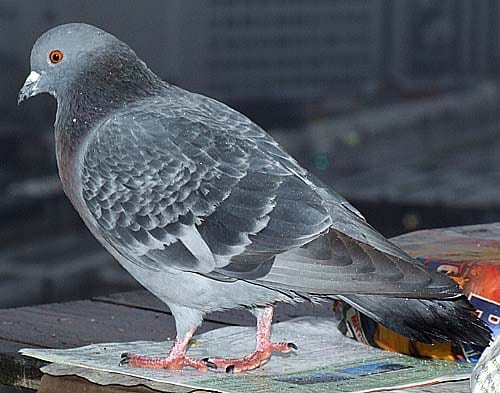
by Pigeon Patrol | May 3, 2021 | Animal Deterrent Products, Bird Deterrent Products, Bird Netting, Bird Spikes, history of pigeons, Pigeon Control, Pigeon Patrol's Services, Pigeon Spikes
Need pigeon removal in your hometown?
Pigeons are a determined bird, doggedly living near humans because of the ample food supply. These birds are indiscriminate eliminators of waste, leaving liquid splatters of dropping anywhere they travel. Their lack of concern for cleanliness extends into their everyday activities, and water contamination has been traced back to pigeon carcasses and feces in water towers near roosting sites. The waste from these birds, which are most commonly seen in urban areas, is very corrosive. Concrete, limestone and metal all suffer from the ill-effects of pigeon droppings. In cities, constant cleanup alone costs thousands of dollars.
Because of the homing ability of pigeons, there are difficulties with relocation. This species of bird was once used as a messenger between civilizations, finding their way over hundreds and thousands of miles. The only way to get rid of pigeons is to discourage them and prevent them from frequenting undesired locations. There are a number of ways to accomplish this, some proven to show more success than others. Information about pigeon trapping – analysis and methods for how to trap.
Unsuccessful methods of pigeon control deal mostly with predator fear. Plastic owls are a favorite of the public when, in reality, the fake predator appears as just that—fake. A pigeon will not be any more leery of an unmoving owl than it would an unmoving human. Pigeons are largely unaffected by unpleasant smells, though it has recently been proven that their homing ability is based on scent mapping and not electromagnetic fields. Sounds are another flop when it comes to pigeon control. Ultrasonic sound emitters may very well produce noises humans can’t hear, but rarely are those sounds ‘annoying’ to birds. If a pigeon can put up with all the noise congestion in a busy city, some random sounds from an ultrasonic radio aren’t going to bother it.
The most practical ways to get rid of pigeons is to convince them that they do not or cannot stay near your home or business. Any ledge can be a roosting site. By installing pigeon nets, bird spikes or electric shockers, pigeons will be less inclined to settle on those surfaces. Nets and spikes prevent roosting all together. Electric strips may be difficult to install at higher locations, but many brands offer solar power and require little maintenance. Electric strips do require more attention than netting and are often more expensive. If your building has smaller sections of roof, bird “spiders” are useful instruments. The wire device resembles a sprinkler in design with thin lines of arced metal extending outward from a central location. These wires are loose and are not strong enough to support the weight of a bird.
Information about how to keep pigeons away – prevention techniques.
There is something to be said for determination, too. Even though most scare tactics do not work on pigeons, harassment techniques can prove beneficial if done frequently and without fail. If pigeons have taken over your yard, letting your dog out will chase them away. Yes, they will come back when the dog is gone, but if this scenario is repeated often enough the pigeons will learn that your yard is not the easiest place to visit. When it comes to opportunistic birds, life is all about easy.
Some towns and cities have experimented with employing the use of falcons to control pigeon populations. The benefit to using birds of prey is that they often keep the pigeons moving, preventing any one roosting area to become long-term. Unfortunately, falcons cannot eliminate a large enough number of the nuisance birds to make a noticeable difference without becoming a nuisance bird themselves.
Pigeons are products of their environment. If they were not deliberately fed in parks and on streets a decline in their nuisance behaviors would be seen. These birds can live on naturally occurring food sources. Unfortunately, it is the poor sanitation habits of people that keep these animals desiring our leftovers. If pigeons have overrun your home, be sure that all garbage and compost is carefully disposed of. You may not be able to control the habits of the neighbors on your block, but you can make your house that much more uninviting by following good hygiene habits.
Pigeon Information & Facts
Pigeon Appearance: Pigeons are robust birds with short necks, usually gray in color with a faint iridescence to their feathers. They have a characteristic back and forth rhythm to their head. This bobbing is a mechanism that allows the birds to focus their vision and perceive depth. Pigeons have duplicate black bands on each wing, but the coloration on the main part of the body can vary. Their feet are suited for perching on ledges and high peaks. The beak of the pigeon is medium in both length and width, ideal for pulling apart bread, picking up small food pieces, or fishing spiders out of cracks.
Pigeon Habitat and Behavior: Pigeons are most often seen in cities. This habitat preference is largely due to the surplus of food available and the high roosting opportunities. Pigeons are fond of the water towers on tall buildings, often building messy nests on the rim. For this reason, most cities require water towers be completely sealed to prevent the birds or their waste from contaminating the water supply. A pigeon will nest almost anywhere and will often do so with many others of its kind. A roost can be made atop any vertical surface. Pigeons are known in invade gutters, ducts, air conditioners, attics, warehouses, and drains. They are not overly concerned with sanitary conditions and will utilize any vertical object in any location for their purposes.
Pigeons are also very food-driven. This problem has been made serious by the continued, deliberate feeding of the birds in urban areas. The birds have little fear of humans and will often converge around people in parks and near restaurants. Pigeon feeding is a common hobby of many city-goers, yet another reason for the lack of caution around humans.
Egg laying can take place as often as every other month. Courtship between the male and the female is brief, and the resulting egg clutch usually only contains two eggs. An abundance of pigeons will result in quick overpopulation, regardless of how many eggs are laid per pair. Some cites have sought population control by replacing viable eggs with fake or unfertilized eggs. This tactic may be effective short-term, but pigeons will lay another clutch once the original appears unproductive.
Pigeon Diet: Pigeons will scavenge for almost any type of grain-based food source. The habit of city restaurants discarding stale bread into parks increases the role this type of food plays in the pigeon diet. In nature, the birds eat insects, berries, seeds, grains, and spiders.
Pigeon Nuisance Concerns: Pigeons are not as bold as some species of birds adapted to living off human leftovers. The major concern when it comes to this species centers on its roosting habits. Pigeons most often roost in number. They are not a sanitary bird, often eliminating waste in their own nests, and living on top of the bodies of their own kind. Pigeon waste is caustic and will do permanent damage to stone and concrete. In many cities, water contamination due to pigeons and their droppings has been a major concern. Because these birds pool around areas with a high opportunity for food (such as restaurants), there is a logical concern for public health.
Pigeon Diseases: The most common zoonotic disease associated with pigeons is called histoplasmosis. This disease is caused by a fungal infection facilitated by the dried powder of pigeon feces. People with compromised immune systems should also be wary of cryptococcosis, another fungal infection affecting only those without healthy defenses. Psittacosis, more commonly transmitted by exotic birds, has been reported in larger cities. These illnesses present with flu-like symptoms, making diagnosis and treatment difficult unless the disease is well underway.
This site is intended to provide pigeon education and information, so that you can make an informed decision if you need to deal with a pigeon problem. This site provides many pigeon control articles and strategies, if you wish to attempt to solve the problem yourself. If you are unable to do so, which is likely with many cases of pigeon removal, please go to the home page and click the USA map, where I have wildlife removal experts listed in over 500 cites and towns, who can properly help you with your nuisance pigeon.
Pigeon Patrol Products & Services is the leading manufacturer and distributor of bird deterrent (control) products in Canada. Pigeon Patrol products have solved pest bird problems in industrial, commercial, and residential settings since 2000, by using safe and humane bird deterrents with only bird and animal friendly solutions. At Pigeon Patrol, we manufacture and offer a variety of bird deterrents, ranging from Ultra-flex Bird Spikes with UV protection, Bird Netting, 4-S Bird Gel and the best Ultrasonic and audible sound devices on the market today.
Voted Best Canadian wholesaler for Bird Deterrent products ten years in a row.
Contact us at 1- 877– 4– NO-BIRD, (604) 585-9279 or visit our website at www.pigeonpatrol.ca
Pigeon/Pigeon Patrol / Pigeons Roosting / Vancouver Pigeon Control /Bird Spikes / Bird Control / Bird Deterrent / Pigeon Deterrent? Surrey Pigeon Control / Pest /Seagull deterrent / Vancouver Pigeon Blog / Birds Inside Home / Pigeons in the cities / Ice Pigeons/ What to do about pigeons/ sparrows , Damage by Sparrows, How To Keep Raccoons Away, Why Are Raccoons Considered Pests/ De-fence / Pigeon Nesting/ Bird Droppings / Pigeon Dropping/ woodpecker control/ Professional Bird Control Company/ Keep The Birds Away/ Birds/rats/ seagull/pigeon/woodpecker/ dove/sparrow/pidgeon control/pidgeon problem/ pidgeon control/flying rats/ pigeon Problems/ bird netting/bird gel/bird spray/bird nails/ bird guard
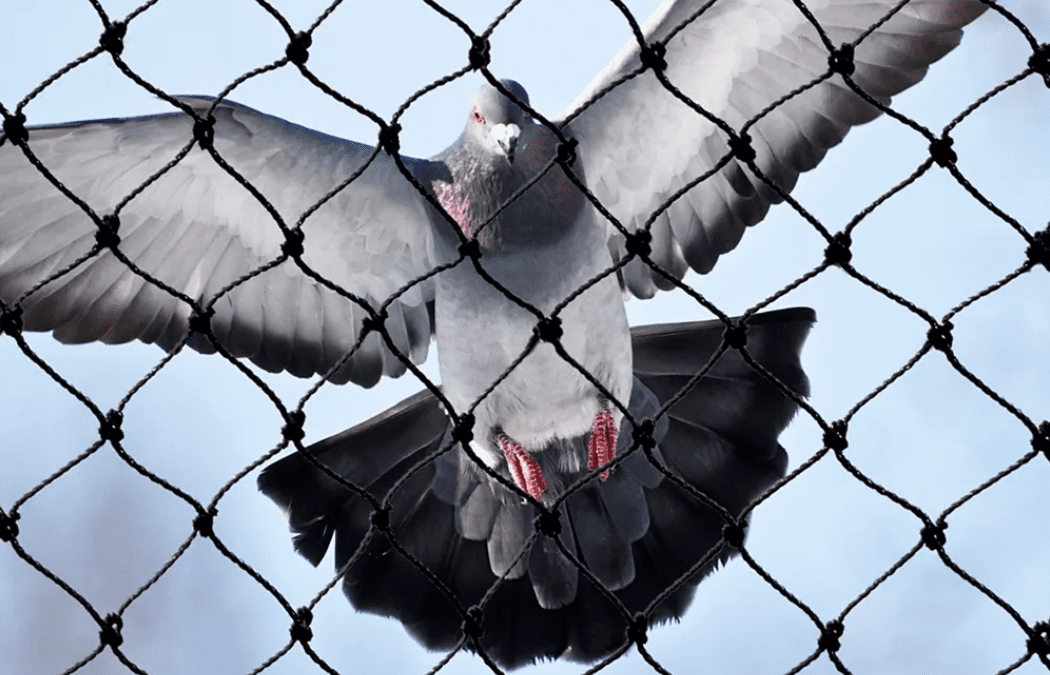
by Pigeon Patrol | Feb 24, 2021 | Bird Deterrent Products, Bird Netting, Bird Spikes, Doves, Pigeon Control, Pigeon Spikes
![Building Product: No Knot Bird Netting - [10203b8] | ARCAT](https://www.arcat.com//photos/birdbgon/132024.jpg)
Why You Should Get Bird Netting
Are you a business owner or property owner that has a bird problem on your premises? Then this is the blog for you!
Here are reasons you should get bird netting!
Bird netting is set up to prevent birds from reaching certain areas, encouraging them to move on to an easier roosting place. Netting can keep birds off windowsills, rooftops, away from your ventilation and roof top air conditioning units. It can take a professional to know just where to place the netting so that it will be the most productive and the least noticeable for customers.
The benefits of using Bird Netting?
- Netting is a great solution against pretty much any type of birds, especially the likes of pigeons and gulls, sparrows and starlings, who are known to cause problems
- Bird netting is highly versatile and can be fitted to pretty much any size that you need to cover
- Bird netting protect structures
- Netting is environmentally safe and can withstand a wide range of environmental conditions
- Netting can last many years
- Netting is virtually invisible when installed correctly
Bird netting or anti-bird netting is a form of bird pest control. It is a net used to prevent birds from reaching certain areas.
Bird protection netting comes in a variety of shapes and forms, The most common is a small mesh (1 or 2 cm squares) either extruded and bi-oriented polypropylene or woven polyethylene.
The color most used is black (as the carbon black UV inhibitor offers the best protection against solar rays), but also bird netting may be available in other colors like white (usually white netting is woven or knitted and has an even smaller mesh size as it will serve as a double purpose anti-hail net for the protection of fruits during summer hail storms or late spring during flowering) or green (usually used in home gardening and mostly sold at retail outlets for the DIY farmers).
Source
Pigeon Patrol Products & Services is the leading manufacturer and distributor of bird deterrent (control) products in Canada. Pigeon Patrol products have solved pest bird problems in industrial, commercial, and residential settings since 2000, by using safe and humane bird deterrents with only bird and animal friendly solutions. At Pigeon Patrol, we manufacture and offer a variety of bird deterrents, ranging from Ultra-flex Bird Spikes with UV protection, Bird Netting, 4-S Gel and the best Ultrasonic and audible sound devices on the market today.
Contact us at 1- 877– 4– NO-BIRD, (604) 585-9279 or visit our website at www.pigeonpatrol.ca
Pigeon / Pigeon Patrol / Pigeons Roosting / Vancouver Pigeon Patrol / Bird Control / Surrey Pigeon Control / Pest / Vancouver Pigeon Blog / Birds Inside Home / Pigeons in the cities / Ice Pigeons/ What to do about pigeons/ most common types of sparrows , Damages Caused by Sparrows, How To Keep Raccoons Away, Why Are Raccoons Considered Pests?de-fence, Pigeon Nesting and Breeding Patterns and Behavior What Do I Do With a Bird Trapped in My Wall? Professional Bird Control Company Keep The Birds Away From Your Business Why Are Raccoons Considered Pests?
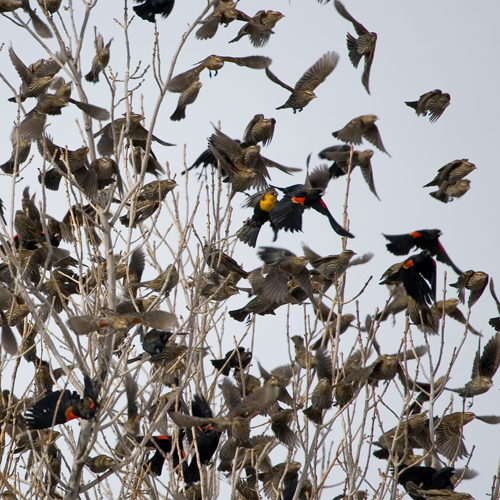
by Pigeon Patrol | Feb 9, 2021 | Animal Deterrent Products, Bird Deterrent Products, Bird Law, Bird Netting, Bird Spike, Bird Spikes, Pigeons, Raccoons
What Bird Are Considered To Be A Pest?
Pest Bird
The Canada goose, pigeons, starlings, seagulls and house sparrows are the most common pest birds in our area. Pest birds are responsible for millions of dollars of damage every year. Bird droppings are highly caustic and eat away at roofing and other structural material. They contaminate food, water, and anything they touch. They release airborne spores that can be inhaled by customers, workers and family members. They also carry disease-causing parasites, fleas, ticks, mites, lice and other biting insects.
Are They Dangerous
Pigeon’s droppings and nests are of medical concern because they have over 50 diseases associated with them. Some of these include histoplasmosis, chlamyiosis, and salmonella. Their droppings are also acidic and may mar many different surfaces. The Canada goose is aggressive at protecting its territory and airport safety is jeopardized as many airport bird strike collisions result from geese roosting in open areas near airports. House sparrows and starlings can be a major nuisance in urban areas due to their nesting, eating, and living habits. Gutters and drainage pipes clogged with sparrow or starling nests can back up and cause extensive water damage. Furthermore, numerous fires have been attributed to electrical shorts from machinery housing sparrow or starling nests.
How To Get Rid Of Them
Controlling these birds can be difficult. That’s why our services may include a combination of products and techniques. Corrective landscaping, barriers, and exclusion methods may all be used to rid your home or business of these nuisance birds. source
Can You DIY?
Due to the complexity of treatment and the time required, pigeons, Canada geese, and house sparrows are generally not a pest many people have success in eradicating on their own. Beware when purchasing products online, as many are not effective. Pesticides are not typically effective against birds and can be harmful to people and pets if they are misused or mixed improperly.
How Soon Can We Come?
Our customers are our top priority. The Pigeon Patrol team will help you as soon as we can
Are These Treatments Safe?
Pigeon Patrol uses the least amount of materials possible while still resolving the problem. We utilize natural products, baits, and mechanical means as a form of treatment whenever possible keeping you, your family, employees, and customers safe.
How To Prevent For The Future
Pest bird problems can be difficult to prevent. Many of our clients choose year-round service against pest birds for the protection of their home or business.
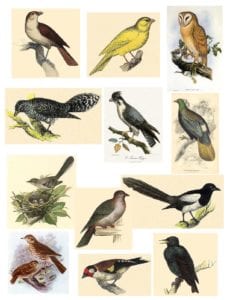
Pigeon Patrol Products & Services is the leading manufacturer and distributor of bird deterrent (control) products in Canada. Pigeon Patrol products have solved pest bird problems in industrial, commercial, and residential settings since 2000, by using safe and humane bird deterrents with only bird and animal friendly solutions. At Pigeon Patrol, we manufacture and offer a variety of bird deterrents, ranging from Ultra-flex Bird Spikes with UV protection, Bird Netting, 4-S Gel and the best Ultrasonic and audible sound devices on the market today.
Contact us at 1- 877– 4– NO-BIRD, (604) 585-9279 or visit our website at www.pigeonpatrol.ca
Pigeon / Pigeon Patrol / Pigeons Roosting / Vancouver Pigeon Patrol / Bird Control / Surrey Pigeon Control / Pest / Vancouver Pigeon Blog / Birds Inside Home / Pigeons in the cities / Ice Pigeons/ What to do about pigeons/ most common types of sparrows , Damages Caused by Sparrows, How To Keep Raccoons Away, Why Are Raccoons Considered Pests?de-fence, Pigeon Nesting and Breeding Patterns and Behavior What Do I Do With a Bird Trapped in My Wall? Professional Bird Control Company Keep The Birds Away From Your Business Why Are Raccoons Considered Pests?
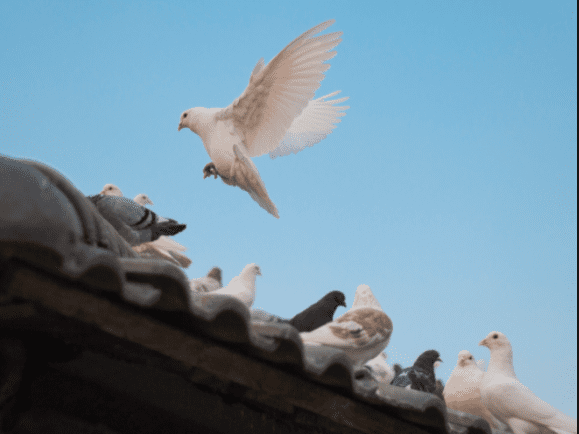
by Pigeon Patrol | Feb 9, 2021 | Animal Deterrent Products, Bird Deterrent Products, Bird Law, Bird Netting, Bird Spike, Bird Spikes, Pigeon Patrol's Services, Pigeon Spikes, Pigeons, UltraSonic Bird Control
Bird control technicians’ nightmare – what to do when we are asked to do the impossible? The straight answer is that there is really nothing we can do when pigeons land on your roof, but there is much more to know.
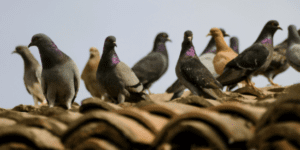
Many customers ask: “Why? Why my roof, what’s so special about my roof that they have to land there?” Believe it or not you are asking the right question: Why? Once you understand why, you will also understand why is it hard to provide a solution in this situation.
Almost always, the primary cause of such problem is the availability of food nearby, plenty of it on a regular basis. Probably someone is feeding the birds or there are lots of garbage in the area or open garbage bins/containers. They could also nest or roost in close proximity and simply they use your roof as a comfy perching spot having a nice vantage point over their feeding area.
What could we do? Install hundreds of feet of spikes on your roof? Put up scary owls? Maybe speakers on the roof peak? Unfortunately none of them are viable. It is simply not feasible to protect large, flat (horizontal or sloped) roof surfaces, such as the entire roof of a victorian house for example.
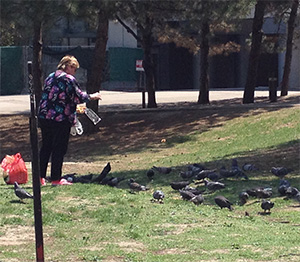
Lady feeding the pigeons in College Park – every day.
First, we need to find ways of eliminating food and water sources nearby. Then we must find their nesting/roosting areas – which will most likely be on another property, otherwise you would see them somewhere else on your house/building, (in which case it would be very easy to resolve the issue,– that provides sheltered structural configurations to establish a protected area where they can stay at night. Pigeons don’t see well at night and usually they go to their roosting spots before nightfall and stay there during the night.
If protecting these areas are not possible (because they are on someone else’s property) we can look at strategically installing Bird Spikes or exclusion Bird Netting or the combination of both, maybe Electric Tracks at critical areas to discourage them from landing on your roof.
You can see now that there aren’t any straightforward solutions in the case of house roof tops and that it is very time consuming to address the issue holistically. The best thing you can do is to call up a professional and get an opinion, you might have missed something that a pro will notice that could help resolve the issue.
source
Some other options for bird repellent would be the Ultrasonic Sound Repellent which makes noises that can only be heard by pigeons and scare them off with the sound or the laser beam which can be activated by movement or you can time when these lasers come on. These lasers are too strong for the pigeons vision to handle and they will fly elsewhere. You can purchase these here : https://www.pigeonpatrol.ca/product/laser/
Pigeon Patrol Products & Services is the leading manufacturer and distributor of bird deterrent (control) products in Canada. Pigeon Patrol products have solved pest bird problems in industrial, commercial, and residential settings since 2000, by using safe and humane bird deterrents with only bird and animal friendly solutions. At Pigeon Patrol, we manufacture and offer a variety of bird deterrents, ranging from Ultra-flex Bird Spikes with UV protection, Bird Netting, 4-S Gel and the best Ultrasonic and audible sound devices on the market today.
Contact us at 1- 877– 4– NO-BIRD, (604) 585-9279 or visit our website at www.pigeonpatrol.ca
Pigeon / Pigeon Patrol / Pigeons Roosting / Vancouver Pigeon Patrol / Bird Control / Surrey Pigeon Control / Pest /
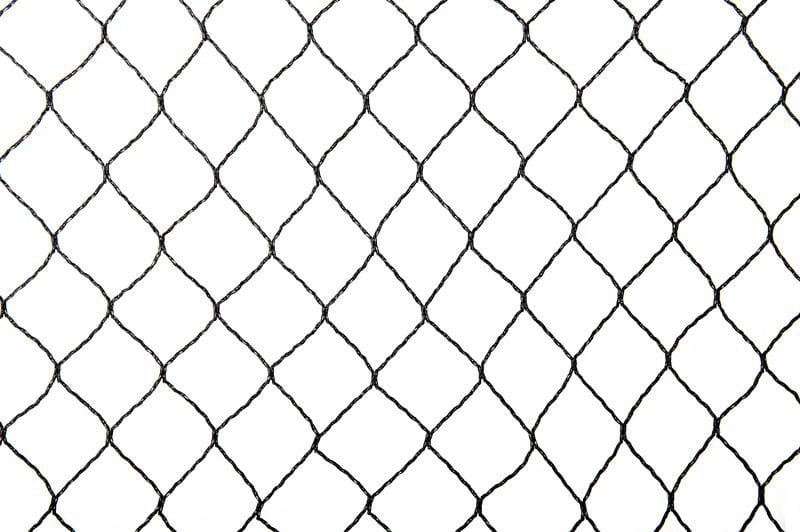
by Pigeon Patrol | Feb 9, 2021 | Animal Deterrent Products, Bird Deterrent Products, Bird Netting, Columbidae, Doves, Pigeon Predators, Pigeons
Pigeon Patrol Bird Netting
BUY HERE : https://www.pigeonpatrol.ca/product/mesh-bird-exclusion-netting/
Bird netting is one of the most common methods used to deter birds from a variety of properties and structures. Check out these tips to make bird netting installation a breeze.
- Avoid making these mistakes when installing bird netting
- Follow these tips to make bird netting a breeze
Bird netting is one of the most common methods used to deter unwanted birds from a variety of properties and structures. While this method may seem easy for DIY property protection, it can become a time-consuming chore if not done properly. It’s also important to properly install the netting in a way that does not cause damage to materials, properties or birds. Here are some bird netting do’s and don’ts to help make the process a bit easier.

NO:
Assume All Bird Netting is the Same
Bird nettings come in a variety of sizes, weights and materials. Before making a purchase, make sure you are choosing the appropriate netting for your needs. Questions to ask when browsing bird netting include:
- What type of property are you protecting? Net types will vary based on different types of properties. The kind of nettings used for buildings and structures is not the same as netting used for gardening or crop protection.
- What bird species are you trying to deter? Weights, materials and mesh sizes will differ depending on the size of birds you are trying to deter.
Install on a Windy Day
It can be tricky to install bird netting on even the calmest of days. The long, thin nets can easily become tangled or knotted if not handled properly. Trying to install netting when it’s windy will make the process much more difficult than if you waited for a day with less wind.
Expect a Permanent Fix
While netting will prevent birds from easily accessing your properties, don’t expect the fix to last forever. Over time, netting will deteriorate, leaving holes or gaps that pest birds can easily slip through. For long-lasting results from bird netting, be prepared for regular maintenance and updates.
YES:
Research
Before you begin, research the best type of bird netting for your needs. Compare the types of netting, sizes, weights and equipment needed to install. Once you’ve found the right type, shop around to find the best-priced deal.
Stay Organized
As you begin installing your bird netting, make sure to stay organized. Stretch out the net to full size, find all the corners and determine which side is up. This will help to minimize tangles and will make the process a lot easier and manageable.
 Give Yourself Inside Access
Give Yourself Inside Access
If using bird netting to protect your fruits or vegetables, remember to make a small access hole for harvest. While the net is built to keep birds out, you’ll still need to be able to get in to pick or tend to your plants. Make an incision large enough for you to fit your hand through to access whatever crop you are harvesting.
SOURCE
Pigeon Patrol Products & Services is the leading manufacturer and distributor of bird deterrent (control) products in Canada. Pigeon Patrol products have solved pest bird problems in industrial, commercial, and residential settings since 2000, by using safe and humane bird deterrents with only bird and animal friendly solutions. At Pigeon Patrol, we manufacture and offer a variety of bird deterrents, ranging from Ultra-flex Bird Spikes with UV protection, Bird Netting, 4-S Gel and the best Ultrasonic and audible sound devices on the market today.
Contact us at 1- 877– 4– NO-BIRD, (604) 585-9279 or visit our website at www.pigeonpatrol.ca
Pigeon / Pigeon Patrol / Pigeons Roosting / Vancouver Pigeon Patrol / Bird Control / Surrey Pigeon Control / Pest / Vancouver Pigeon Blog / Birds Inside Home / Pigeons in the cities / Ice Pigeons/ What to do about pigeons/ most common types of sparrows , Damages Caused by Sparrows, How To Keep Raccoons Away, Why Are Raccoons Considered Pests?de-fence, Pigeon Nesting and Breeding Patterns and Behavior What Do I Do With a Bird Trapped in My Wall? Professional Bird Control Company Keep The Birds Away From Your Business Why Are Raccoons Considered Pests?

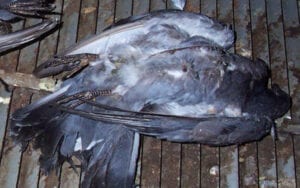


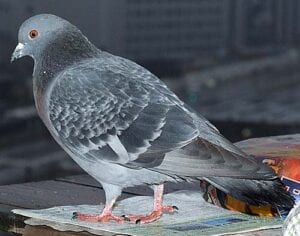

![Building Product: No Knot Bird Netting - [10203b8] | ARCAT](https://www.arcat.com//photos/birdbgon/132024.jpg)







 Give Yourself Inside Access
Give Yourself Inside Access